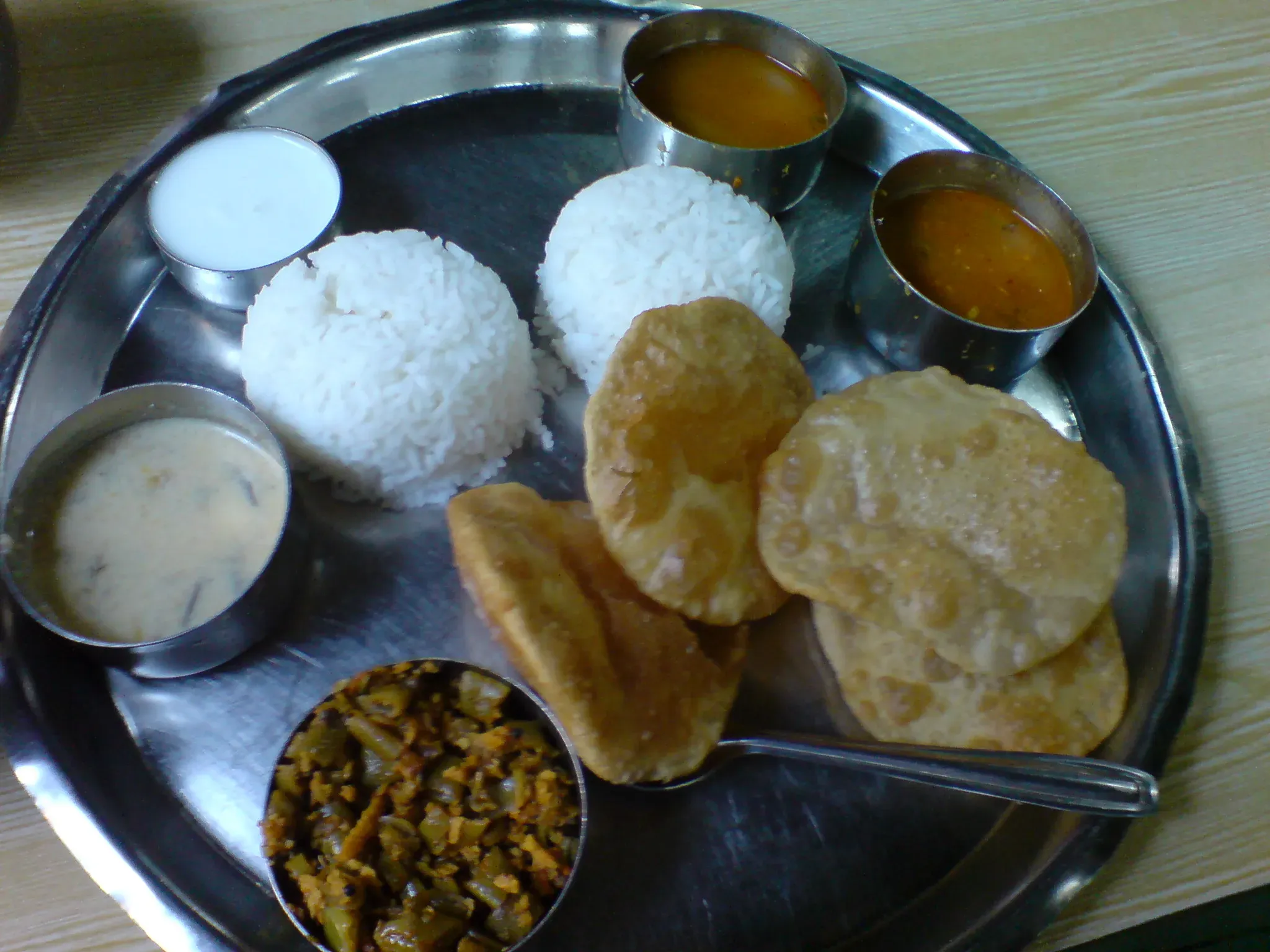Udupi Thali

This thali is named after a small town on the southwestern coast of India, Udupi, near Mangalore. It is famous for the Krishna temple, where the Udupi (also called Udipi) cuisine originated. This vegetarian cuisine is known for its deliciousness, with no onion, garlic, commonly found in rich North Indian cuisine. Udupi cuisine comprises dishes made from grains, beans, and vegetables. The variety and range of dishes are wide, and a hallmark of this cuisine is the use of locally available ingredients.
Udipi thali is very common in Mumbai, where food is mostly served in steel plates, but at certain restaurants, you have the choice of a plantain leaf. Eating with bare hands is more fun, although spoons are available. Normally, the meals you get have unlimited servings except for the sweet dish (only one portion of sweet dish is included, like kheer or kalajamun). Service is very fast, and before you can blink, your meal is in front of you, even during peak hours; hardly ever does one have to wait for more than 10 minutes. The menu is not at all spicy nor rich in oil but very close to ghar kaa khana (everyday meal). That is one main reason these places are very crowded during lunch hours.
- Chapatti (wheat bread) or Puri,
- Sambhar - a soupy vegetable (pumpkin or gourd) liquid with a sour edge
- Rasam (spicy pepper water)
- Chutney (mostly of coconut) or Dal (lentil curry unlimited)
- 3 Vegetables (Fixed Qty) - one Dry Vegetable, One with Gravy, and one made with freshly grated coconut
- Curd (1 bowl)
- Pickle
- Pappad
- One bowl steamed rice. (If you want to eat less rice, you can take 2 chapatis or 3 puris or vice-versa).
But in recent times, the non-vegetarian variation of the same cuisine is making marks not only in India but across the world. Seafood cooked in coconut and whole red chilies is one of the common variations.
Bon Appétit – bien sûr, while you tear off a small morsel of chapati, dip, and savor the taste of authenticity.
About the Author

Santanu
A nature lover, runner, travel enthusiast, and occasional baker. He dives into web development and cloud technologies, always exploring and building with curiosity.
View all posts →

